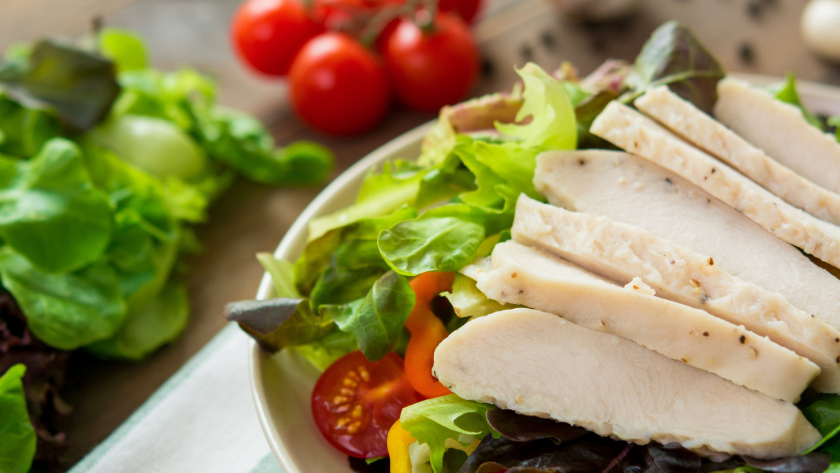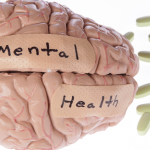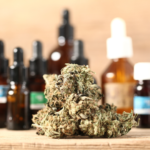A healthy gallbladder is an important part of your digestive system. It is a small, pear-shaped organ that stores bile and helps your body digest fats. The bile then helps your body digest fatty foods. It is located underneath your liver and on the right side of your abdomen. Gallstones – small, hard deposits that form inside your gallbladder – are fairly common.
A healthy gallbladder is essential to maintaining your health and well-being. The best way to avoid gallbladder issues is by maintaining a healthy body weight. A healthy gallbladder plays a vital role in your digestive system, which is why you should take good care of it. It stores bile that helps your body digest fat. However, if bile builds up in your gallbladder for too long, it can cause gallstones.
The good news is that you can prevent gallstones and gallbladder disease by making healthy changes to your diet.
Tips for a healthy gallbladder
Plant-Based Foods
Many people with gallbladder conditions are advised to follow a gallbladder diet. When it comes to eating healthy, there are lots of low-cholesterol, low-fat, and low-sugar options, as well as other foods to avoid. But the main focus of such a diet should be on getting plenty of plant-based foods.
While gallbladder cleanses can positively and dramatically impact your health, they might not even be necessary in the first place. Many foods known for supporting a healthy gallbladder-including green leafy vegetables, artichoke, blueberries, and beets-are actually plant-based foods. A diet that meets these criteria will go a long way toward ensuring your gallbladder is able to do its job of clearing toxins from your body.
Lean Protein
When you suffer from gallstone disease, eating healthy is a balancing act. On the one hand, you’re probably watching your fat intake and limiting your cholesterol. Still, on the other, you need to eat enough of the right kinds of foods to keep your gallbladder and liver strong enough to help you digest food and absorb nutrients, as well as keep energy levels up.
Lean protein foods include:
- Fish
- Lean beef
- Skinless chicken
- Skinless turkey
- Beans, peas, and lentils
- Low-fat cottage cheese
- Tofu
- Low-fat milk
- Egg whites
They help you feel fuller for longer, which is helpful for weight control. These proteins also keep your gallbladder healthy as you age. Your gallbladder releases bile that helps you digest fat. If you don’t eat enough lean protein, you may not be getting enough bile. This can cause your gallbladder to “clog up.”
Food with High Fiber
Gallbladder diseases can be easily treated with home medications and with the proper diet. Food with high fiber aids in making the stool soft and regular. Fiber is important in the gallbladder because it helps in digestion, and without healthy digestion, the gallbladder cannot function properly. A high-fiber diet is also important for losing weight.
Here are some high-fiber foods you can add to your diet.
- Wheat pasta
- Barley
- Chickpeas
- Berries
- Pears
- Chia seeds
- Almonds
- Celery
- Carrots
Magnesium, Vitamin C, and folate
Gallbladder dysfunction, or gallstones, is a medical condition impacting millions of people worldwide. This is often related to obesity, age, or genetics. Gallstones can be very painful to the sufferer. Fortunately, by supplementing with magnesium, vitamin C, and folate, you can reduce symptoms of gallbladder dysfunction and reduce the chances of developing gallstones.
Calcium
Did you know that calcium can decrease the pain associated with gallstone attacks? The gallstone is made of calcium carbonate (which also happens to be a very important source of calcium). When there is an excess amount of calcium in the bloodstream, the gallbladder will contract, and the painful gallstone attack will ease. This is the reason that many people with chronic gallstone problems take a calcium supplement.
A lack of calcium can cause gallbladder and stones, as it helps to improve gallbladder function and assist in burning fat. When calcium is lacking, gallstones may form. Calcium is important for the metabolism of fat-soluble vitamins A, D, E, and K. A diet rich in vitamin D, vitamin E, and vitamin K promotes the conversion of cholesterol into bile acids.
As you can see, there are many things to think about when it comes to tailoring your diet toward establishing a healthy gallbladder. But it is doable. You just need to incorporate these tips into your life and get into the right mindset. Then, you’ll be good to go.
What happens when you do not have a healthy gallbladder?
When you do not have a healthy gallbladder, it can lead to various health complications and disrupt the digestive process. Common issues associated with an unhealthy gallbladder include the formation of gallstones, which are solid particles that can block the bile ducts or cause inflammation in the gallbladder. This can result in severe pain, nausea, and vomiting, leading to a condition known as biliary colic. In extreme cases, gallstones may obstruct the bile ducts and lead to pancreatitis, a painful and serious condition characterized by inflammation of the pancreas.
How to treat unhealthy gallbladder?
The treatment for an unhealthy gallbladder depends on the specific condition. For gallstones that cause symptoms, medications to dissolve stones or surgical removal of the gallbladder (cholecystectomy) may be advised. Infections or inflammation may be treated with antibiotics, and bile duct obstructions may require endoscopic procedures to remove stones. Nutritional adjustments are recommended for individuals who have had their gallbladder removed. Consulting a healthcare professional is essential to determine the most appropriate treatment plan based on the individual’s condition and medical history.
Pros & Cons
Gallbladder Surgery (Cholecystectomy):
Pros:
Cons:
Medications (for Gallstone Dissolution):
Pros:
Cons:
Ultimately, the choice between gallbladder surgery and medications depends on the specific condition and the patient’s overall health. It is essential for individuals to consult with their healthcare provider to discuss the most appropriate treatment approach based on their individual circumstances and medical considerations.




